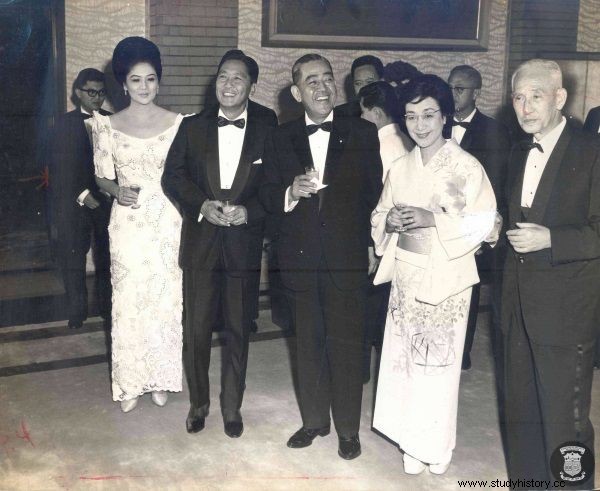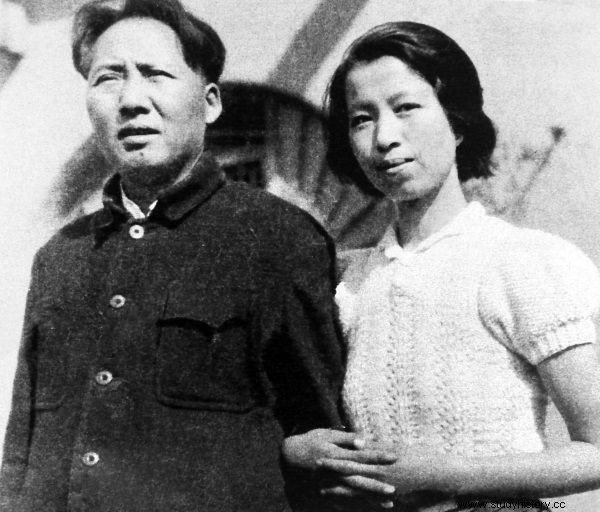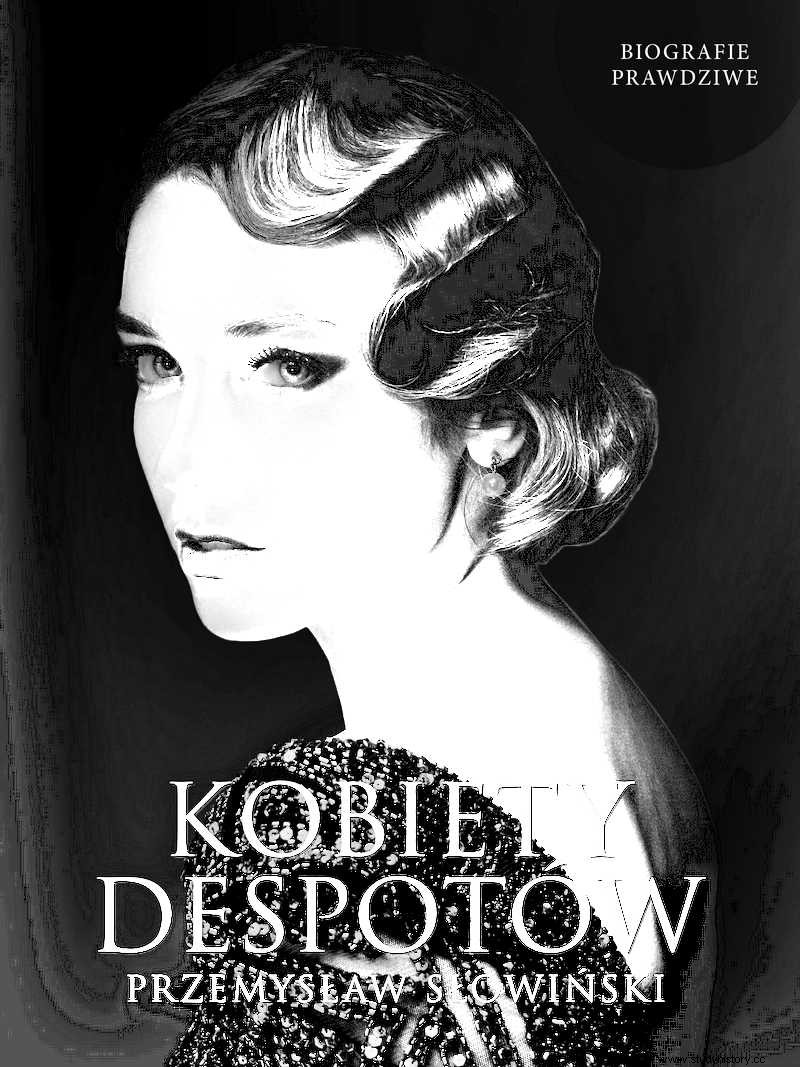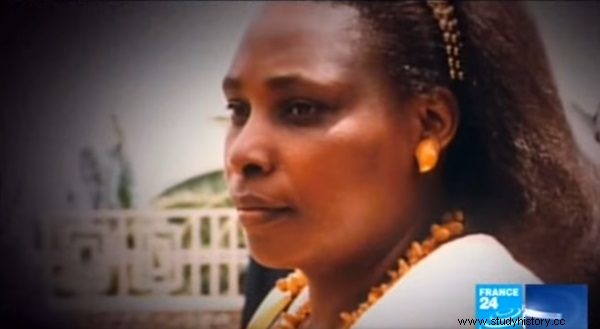As millions suffered under the heels of their men, these women had fun, spent a fortune, or convinced the world that everything was fine. Moreover, they not only stood faithfully at the side of the dictators, but also managed to get their hands dirty with blood. Here is a compilation of the most ruthless despot women.
1. Imelda Marcos
Imelda Romualdez came from a poor Filipino family. She was one of eleven children of a lawyer working in the provinces who on a daily basis could not provide his offspring with any fancy meals or beautiful costumes. The meat in her house was a luxury. Imelda, however, had a capital that she decided to use:exceptional beauty. A beautiful girl fled to the capital, where she won a beauty contest, got into the salons and achieved her primary goal - in 1954 she found a rich husband.
Its other half turned out to be Ferdinand Marcos, who made a political career. At the time, he was engaged to another beauty queen, but for Imelda it was no obstacle. She quickly turned his head and plunged her competitor. A decade after their wedding to the clever Miss Romualdez, he became president of the Philippines.
First, he began to reform the country, but quickly got bored with acting for the benefit of the citizens and introduced an inhuman dictatorship. Imelda was not only a wife, but also a political partner of Marcos, and when he fell ill, de facto she exercised power over the country. She became known primarily for her absolute extravagance and extravagance. At some point, she began to treat citizens, the state treasury and everything that belonged to it as personal property.
At a time when millions of people in the Philippines were starving or living in extreme poverty, she was basking in luxury and spending a fortune. During one of her trips to the US, she considered buying the Empire State Building for $ 750 million, but gave up because it would be too ostentatious. Instead, she bought two buildings for ... $ 111 million and two plots of land in Manhattan.

Marcos with the Japanese prime minister and his wife. Imelda first from the left (photo:public domain)
In 1986, the Filipinos told Imelda's madness and Ferdinand's swindlers enough. The Marcos were overthrown and had to flee. Only then did the inhabitants of the country find out what the scale of their luxury was. The runaway dictator and his wife took thirty-two pieces of luggage stuffed with jewels, cash, securities and other goods. Some of the jewelery items were brought in by their granddaughter through border control.
The country has a fabulous collection of clothes from the most expensive designers, which included thousands of pairs of the most expensive shoes and lots of underwear, from sex shop stuff to bulletproof bras.
2. Jiang Qing
The future Mrs. Mao jumped into the moment. The influential politician already had a wife, and she was deeply involved in his activities:she took part with him in the Long March (1934-1935), that is, the regrouping of Chinese communist forces, which claimed half of the military. Then, however, she was unluckily wounded in the head in the bombing. While He Zizen was in Moscow for treatment, Chairman Mao met actress Jiang Qing. For her, he abandoned his long-time partner and in 1939 entered a new marriage. Despite strong opposition from the party, he stayed with it for the rest of his life.

Mr. and Mrs. Mao (photo:public domain)
Jiang Qing began her way as an actress nicknamed the Blue Apple. When she got involved with Mao Zedong, she promised not to get involved in politics. She stuck to this decision for several dozen years, and finally, in 1963, the Chairman - at this stage no longer a political activist, but a full-fledged, bloody dictator - assigned her to the Ministry of Culture. Ms. Mao quickly showed her true face.
Jiang Qing became the face of the famous Cultural Revolution, which in practice was to eradicate all manifestations of traditional culture and replace them with the cult of Mao. The activities of an inhuman woman took a terrible toll. Thousands of people died or were imprisoned, centuries-old Chinese cultural heritage was destroyed, universities were closed, and professors were persecuted. The young communists carrying out Jiang's orders also attacked the villages, torturing and raping. At the end of Mao Zedong's life, she was actually in charge. When her husband died, her political opponents took power and she was sentenced to death.
3. Nexhmiye Hoxha
Nejmije attended an elite school for girls, and in 1941 she began working as a teacher. She had come into contact with communists before and was involved in the activities of the youth movement of the Communist Party of Albania. She ran an underground women's newspaper and dealt with propaganda. In 1945, she married the ruling communist dictator Enver Hoxha. The wedding became the gateway to a political career. She joined the Albanian parliament until the fall of the regime.
Nexhmiye's husband had tremendous power in his hand. He began his rule in 1944 by consolidating communism and his own position, and seizing the property of almost all private enterprises, including those owned by citizens of other countries.

The article was inspired by the book by Przemysław Słowiński, "Women of despots" (Fronda Publishing House 2018).
Later he went on to exterminate his enemies, including landowners, peasants reluctant to collectivization, and clergymen of all faiths. Hoxha also introduced the Chinese Cultural Revolution. Its secret services were like the Nazi Gestapo, and the mass graves of the regime's victims are still being discovered. Years later Nexhmiye did not hide the fact that she was her husband's chief adviser. She was also constantly active in the regime apparatus.
When her husband was isolating the country, she participated, among other things, in introducing a law that broke many families. Foreigners linked to Albanians were considered spies. Such marriages were forced to divorce, and a citizen of a foreign country was thrown abroad. People who didn't want to be separated were put in jail.
During the reign of her husband, Nejmije lived in luxury, taking advantage of the goods absolutely unavailable to ordinary citizens of the country. Interestingly, still defends the good name of Enver Hoxha , arguing that the persecution of the victims of communism, the activities of the secret police and the murders were slander and the dictator was not responsible for any crimes.
4. Agathe Habyarimana
Hardly anyone has heard about Agathe Habyarimana. This Rwandan for a long time tried to maintain the facade of the ordinary wife of an African cacique. She tried to convince everyone that, although she was in fact the first lady, the wife of Rwandan dictator Juvénal Habyariman, for twenty years she only looked after the house and the garden. On April 6, 1994 he was assassinated. She survived, previously warned about the planned attack on the President of the Congo. It's just that she forgot to tell Juvénal through absent-mindedness or maybe deliberately ...

Agathe Habyarimana in the material prepared by the French TV France24 (screen from Youtube.com)
On the day the president died, a great massacre of the Tutsi people began, led on a gigantic scale by Hutu people and by military forces. Over a million people died in three months. On April 9, 1994, Agathe fled Rwanda with the help of the French military and has since lived in France, presenting herself as a victim. For the Tutsi Rwandans, however, it is everything but that. Contrary to what the picture Habyariman is trying to create, her true story turns out to be extremely bloody. The First Lady is accused of actually ruling the country with her relatives.
Moreover, it was she and her clique who planned the final resolution of the Tutsi issue. The use of a euphemism invented by the German Nazis to conveniently call the ruthless extermination of the Jews is right here. The Rwandan Hutu of Agathe at the head decided to prepare the same fate for their fellow citizens. In 2010, the former first lady was arrested in France, but a year later it was decided that she would not be extradited to the new authorities of the country, although she was not threatened with the death penalty. Interestingly, Habyarimana said last year on Belgian radio that she had no idea about the genocide and only found out about it ... after arriving in France. Eyewitnesses say something else entirely.
Buy the book on Empik's website:

